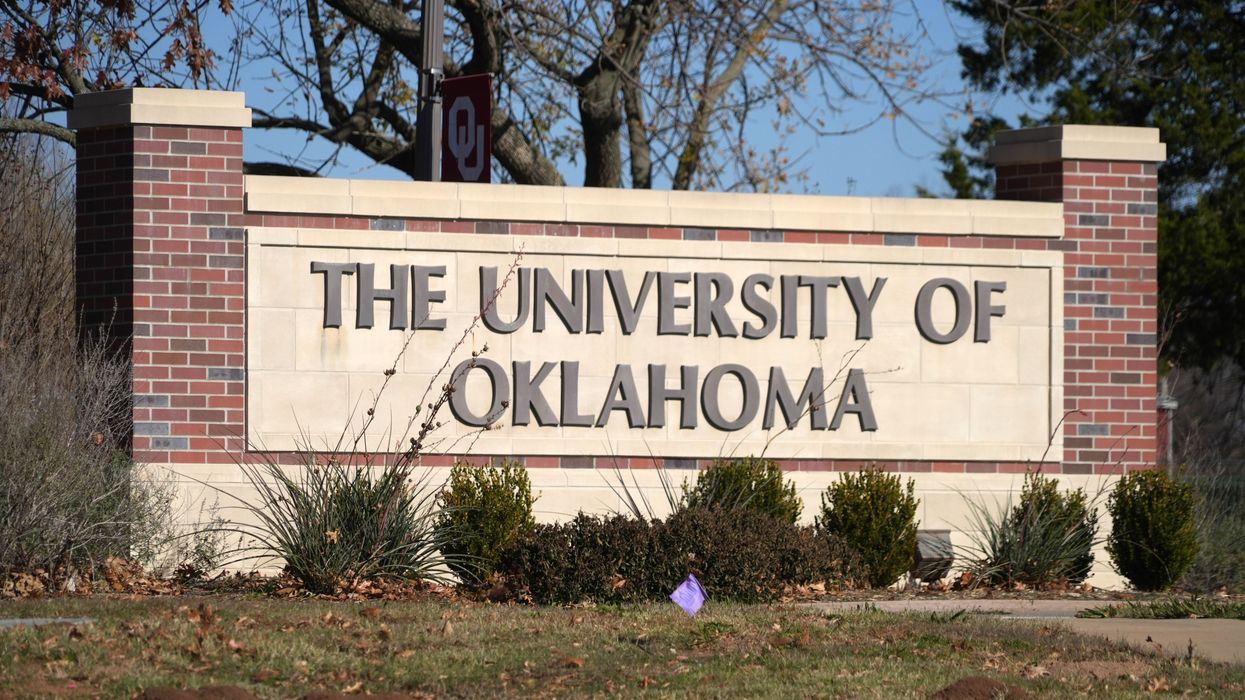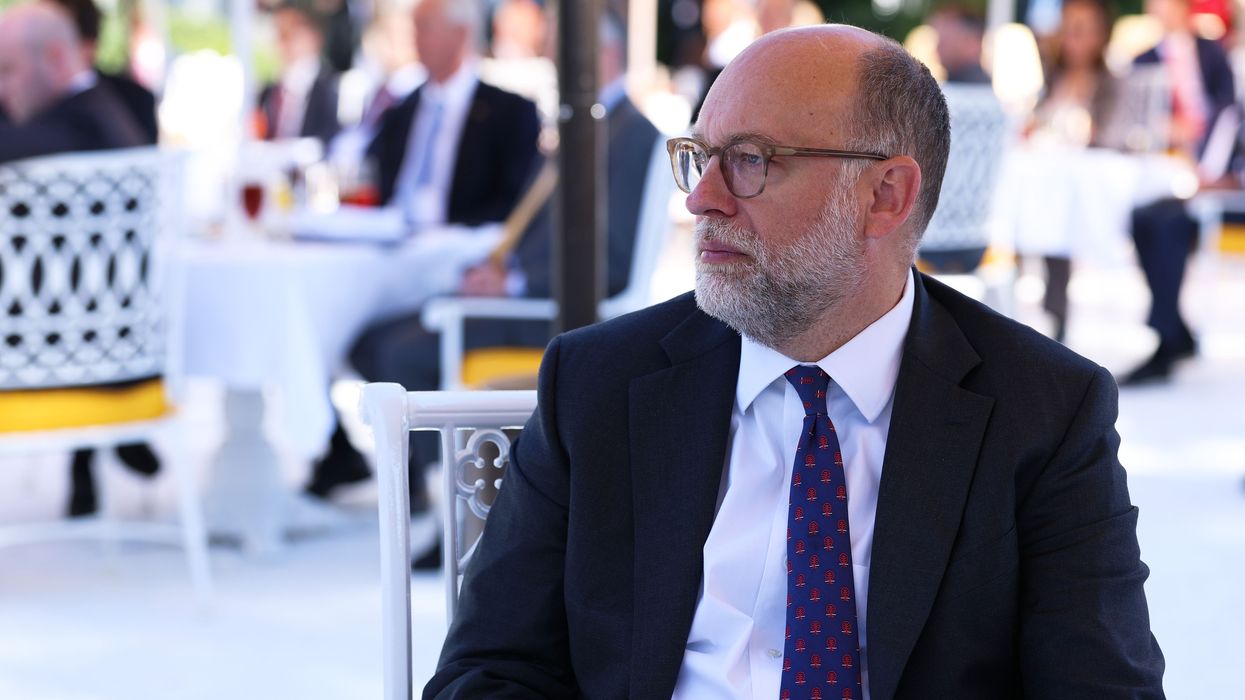December, 09 2009, 11:30am EDT
For Immediate Release
Contact:
Brenda Bowser Soder
bowsersoderb@humanrightsfirst.org
202-370-3323 - office
Test Case for Inter-American Human Rights Commission Could End Widespread Criminalization of Activism in Colombia
Colombian Activist, Victim of Arbitrary Detention, Seeks Urgent Precautionary Measures
NEW YORK
A test case filed yesterday with the Inter-American Commission on
Human Rights (IACHR) could mark a turning point in efforts to end the
criminalization of Colombian human rights defenders, according to Human
Rights First, an international human rights organization.
Principe Gabriel Gonzalez Arango, a student activist and member of
the Colombian Political Prisoners Solidarity Committee, has formally
lodged a petition with the IACHR, stating that his human rights were
violated given his arbitrary detention and the ongoing malicious
terrorism proceedings against him. Gonzalez also requested urgent
precautionary measures from the IACHR to avoid a return to arbitrary
detention.
"This petition gives the Inter-American Commission on Human Rights a
historic opportunity to overturn years of arbitrary detention and
unjust persecution against Gonzalez," said Human Rights First's Andrew
Hudson. "The Commission should send a strong message that it will not
tolerate abuse of the Colombian judicial system to intimidate and
silence human rights defenders. It should also adopt urgent measures to
ensure that Gonzalez's fundamental rights are not further trampled
while his case is pending"
The petition before the IACHR highlights the need for Colombia's
Supreme Court to admit Gonzalez's appeal and quash the erroneous
terrorism conviction against him. The case was filed on Gonzalez's
behalf by Human Rights First and the International Human Rights Clinic
of the George Washington University Law School.
The groups note that the precedential value of this case is
enormous, and a strong decision by the Commission would help dozens of
other Colombian activists who are victims of baseless criminal
prosecutions. "Gonzalez's case is just the tip of the iceberg.
Throughout Colombia, human rights defenders are subject to trumped-up
charges intended to persecute them" said Hudson.
Gonzalez was detained in Bucaramanga for more than one year starting
in 2006. He remained incarcerated while awaiting trial on charges of
rebellion and of being in charge of an urban militia force linked to
the FARC guerrilla group. At trial, a judge acquitted him of all
charges, finding that they were baseless and should never have been
initiated. Inexplicably, the acquittal was appealed, and in March 2009,
after two years of liberty, the Superior Tribunal of Bucaramanga
overturned the lower court's judgment and sentenced Gonzalez to seven
more years in prison for the same false charges. The prosecution relied
on two witnesses: one who was unable to physically identify or even
name Gonzalez before he was detained, and the other who admitted to
providing statements under duress from prosecutors.
In June 2009, Gonzalez appealed to Colombia's Supreme Court arguing
that his conviction was void for two reasons. First, it violated his
right to defense by failing to inform him that a preliminary
investigation against him was underway. Second, for error of reasoning
by accepting contradictory and incoherent witness evidence from
ex-combatants receiving re-integration benefits from the state. A
decision from the Supreme Court about whether to accept the appeal is
expected any day.
In October 2009, Human Rights First awarded Gonzalez its prestigious annual human rights award in recognition of his outstanding promotion of human rights.
A range of international entities have expressed concern about
Gonzalez's prosecution, including the UN High Commissioner for Human
Rights, the UN Working Group on Arbitrary Detention, the UN Special
Rapporteur on Human Rights Defenders, and the United States Department
of State.
According to Human Rights First, Gonzalez's case is emblematic of many others. In February 2009, the group released In the Dock and Under the Gun: Baseless Prosecutions of Human Rights Defenders in Colombia,
a comprehensive report that, for the first time, documented the
widespread use of trumped-up charges to silence Colombian human rights
activists.
Further information:
More information on Gonzalez and his case
Gonzalez's testimony before US Congress in October 2009
Human Rights First is a non-profit, nonpartisan international human rights organization based in New York and Washington D.C. Human Rights First believes that building respect for human rights and the rule of law will help ensure the dignity to which every individual is entitled and will stem tyranny, extremism, intolerance, and violence.
LATEST NEWS
University of Oklahoma Removes Teacher Over Failing Grade for Student's Bible-Based Gender Essay
"So if a geology student at the University of Oklahoma says in class the earth is 6,000 years young because that’s what they believe, a geology teacher can’t say squat?" asked one critic.
Dec 23, 2025
A decision from the University of Oklahoma on Monday left some asking whether the research university can still be seen as having "academic standards" after an instructor was removed from teaching duties for giving a failing grade to a student who focused on her own religious beliefs about gender in a paper for a psychology course.
The university released a statement saying the graduate teaching assistant in the course, Mel Curth, had been "arbitrary" in the grading of a paper by student Samantha Fulnecky, who wrote an assigned essay about an article the class read about gender, peer relations, sterotyping, and mental health for the course.
Fulnecky's paper cited the Bible and focused heavily on her beliefs that "God made male and female and made us differently from each other on purpose and for a purpose."
"Women naturally want to do womanly things because God created us with those womanly desires in our hearts. The same goes for men," she wrote in the essay, adding that "society pushing the lie that there are multiple genders and everyone should be whatever they want to be is demonic and severely harms American youth."
Curth, who is transgender, gave Fulnecky a zero for the essay and emphasized in her response that she was "not deducting points because you have certain beliefs," but because the paper "does not answer the questions for the assignment, contradicts itself, heavily uses personal ideology over empirical evidence in a scientific class, and is at times offensive."
"Using your own personal beliefs to argue against the findings of not only this article, but the findings of countless articles across psychology, biology, sociology, etc. is not best practice," Curth wrote.
Another instructor concurred with Curth on the grade, telling Fulnecky that "everyone has different ways in which they see the world, but in an academic course such as this you are being asked to support your ideas with empirical evidence and higher-level reasoning."
On Monday, the university suggested Curth's explanation for the grade was not satisfactory.
"What is there to say other than that the University of Oklahoma has no academic standards?" asked journalist Peter Sterne in response to the university's statement.
One civil rights advocate, Brian Tashman, added that the school's decision opens up numerous questions about how academic papers that focus on a student's religious beliefs will be graded in the future.
"So if a geology student at the University of Oklahoma says in class the earth is 6,000 years young because that’s what they believe, a geology teacher can’t say squat?" asked Tashman. "What if their religion teaches the earth is flat? Or that all of mankind’s problems can be traced back to Xenu?"
Curth had initially been placed on administrative leave earlier this month when Fulnecky filed a religious discrimination complaint with the school.
Fulnecky's allegations drew the attention of the school's chapter of Turning Point USA, the right-wing group that advocates for conservative political views on college and high school campuses. The group is closely aligned with the Trump administration. Vice President JD Vance spoke at Turning Point's AmericaFest last weekend—and used the appearance to tell young conservatives that their movement should not root out antisemitism with "purity tests"—and the assassination of its founder, Charlie Kirk, earlier this year, was followed by the White House's efforts to crack down on what it called left-wing extremism, with President Donald Trump directly blaming the "radical left" for Kirk's killing before a suspect was identified.
While Fulnecky garnered support from the Turning Point chapter, hundreds of her fellow students rallied in support of Curth in recent weeks, chanting, "Protect Our Professors!" at a recent protest.
A lawyer for Curth said Monday that she is "considering all of her legal remedies, including appealing this decision by the university."
“Ms. Curth continues to deny that she engaged in any arbitrary behavior regarding the student’s work," Brittany M. Stewart told the Washington Post.
The university did not release its findings of the religious discrimination investigation it opened into Fulnecky's case.
The school's decision to remove Curth from teaching duties, said author Hemant Mehta, "is what academic cowardice looks like."
Keep ReadingShow Less
State AGs Sue Vought Over 'Unlawful' Scheme to Bankrupt Consumer Protection Bureau
"By refusing to fund the CFPB, even when legal and appropriate funding mechanisms are available, the Trump administration has sharpened its message that it does not care about affordability."
Dec 23, 2025
A coalition of attorneys general from across the US sued White House budget chief Russell Vought on Monday over his effort to completely starve the Consumer Financial Protection Bureau of funding, a ploy that—if successful—would eliminate a key path of recourse for Americans harmed by corporate abuses.
The lawsuit was filed in a federal court in Portland, Oregon by the top law enforcement officials of 20 states—including New York, California, Maine, and Hawaii—and the District of Columbia. The suit notes that Vought, in his capacity as acting director of the consumer bureau, "has worked tirelessly to terminate the CFPB’s operations by any means necessary—denying plaintiffs access to CFPB resources to which they are statutorily entitled."
The attorneys general specifically challenge Vought's "unlawful" refusal to request CFPB funding from the Federal Reserve. Under the law that established the consumer bureau, the agency receives funding from the Fed rather than congressional appropriations.
Vought has advanced a tortured definition of "earnings" to argue the Fed lacks funds from which the CFPB can draw, leaving him with no choice but to allow the agency he and his far-right allies have long opposed to languish.
The new lawsuit argues that Vought's position violates the Administrative Procedure Act and the US Constitution. If allowed to stand, Vought's refusal to seek CFPB funds would "make it all but certain that the CFPB will run out of funding completely in January 2026."
California Attorney General Bonta said in a statement Monday that the Trump administration’s "latest effort to destroy the CFPB means that hundreds of thousands of consumer complaints will fall on deaf ears."
"By refusing to fund the CFPB, even when legal and appropriate funding mechanisms are available, the Trump administration has sharpened its message that it does not care about affordability, that it does not care to be on the side of families and working Americans," said Bonta.
The CFPB has been a target of big banks and other powerful corporations since its creation in the wake of the 2008 financial crisis. The agency's success—it has returned more than $21 billion to consumers since 2011—has only intensified efforts by corporate-friendly lawmakers and right-wing bureaucrats to gut it.
Since taking control of the CFPB earlier this year, Vought has effectively shut down bureau operations and signaled a lax approach to enforcement.
US Sen. Elizabeth Warren (D-Mass.), an architect of the CFPB, applauded the state attorneys general for taking legal action against Vought.
“The Trump administration’s latest illegal attempt to shut down the Consumer Financial Protection Bureau will hurt families in every state across the country—and now states are fighting back," said Warren. "Today’s new lawsuit underscores how illegally starving the agency of funding would turn off the consumer complaint database that has helped millions of Americans at the end of their rope after getting scammed."
"If courts uphold the law," she added, "they’ll reject this attempt to sideline the financial cop on the beat that has returned more than $21 billion directly to Americans cheated by big banks or giant corporations.”
Keep ReadingShow Less
Watch 60 Minutes 'Inside CECOT' Segment Blocked by CBS News Chief Bari Weiss
"Watch fast, before Corus gets a call from Paramount Skydance."
Dec 22, 2025
A social media user on Monday shared at least part of a "60 Minutes" segment about a prison in El Salvador—where the Trump administration sent hundreds of migrants—after CBS News editor-in-chief Bari Weiss controversially blocked its release.
"Canadians, behold! (And Americans on a VPN.) The canceled '60 Minutes' story has appeared on the Global TV app—almost certainly by accident," Jason Paris wrote on Bluesky, sharing a link to download a nearly 14-minute video of the segment, which has since been uploaded to various places on the internet.
The segment is titled "Inside CECOT," the Spanish abbreviation for El Salvador's Terrorism Confinement Center.
Watch:
"Watch fast, before Corus gets a call from Paramount Skydance," Paris added. Corus Entertainment owns Global TV. Paramount and Skydance merged earlier this year, after winning approval from the Trump administration. Weiss, a right-wing pundit, was then appointed to her position.
In a leaked email, "60 Minutes" correspondent Sharyn Alfonsi wrote that "Bari Weiss spiked our story," and "in my view, pulling it now, after every rigorous internal check has been met, is not an editorial decision, it is a political one."
Keep ReadingShow Less
Most Popular


